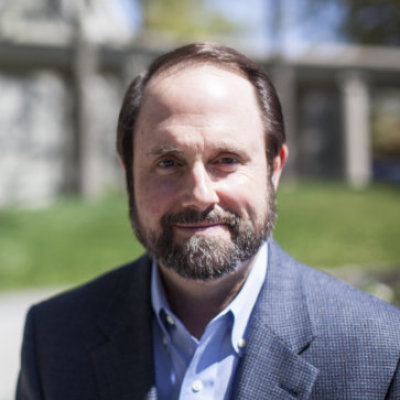Ending a difficult year and meeting needs with grace

Colorado has confirmed the first US case of a COVID-19 strain, first reported in the UK, that is more contagious but not more severe than previously identified strains of the virus. Meanwhile, the US recorded more than 3,700 coronavirus deaths yesterday, a new one-day record. Among them was Luke Letlow, a forty-one-year-old who was elected to Congress in a runoff earlier this month. He is survived by his wife and two young children.
The news reminds us that we are ending a very difficult year. Compassion and encouragement are gifts every one of us needs.
To that end, consider this story:
If you missed seeing Santa Claus in person this year, that’s because you don’t live in Olney, Maryland. That’s where Stephen Schreurs jogs on the streets for exercise while wearing red or purple shorts and a matching hat.
He’s known in Maryland as the marathon-running Claus with a cause. He has nearly fifty long-distance races under his wide leather belt, each of which he runs for charitable causes he promotes on his Facebook page.
Schreurs has been playing the role for four decades, ever since children began pointing to his full beard and exclaiming “Santa!” Each year, as Christmas draws near, he puts on a red velvet suit sewn by his wife and visits homes and community events. “He has such an amazing persona that you really believe he’s Santa,” says a neighbor.
Schreurs remembers the time he allowed a blind girl with several health problems to touch his beard at Disney World, then later learned that her family was visiting the theme park to fulfill her last wish. Another memorable moment came when an autistic girl sat next to him and “honked” his nose—the first time she’d ever interacted with a stranger, her mother told him.
“That’s what it’s all about—that’s why I’ve embraced the role,” he says.
Since 2008, however, there’s been a more personal motive for Schreurs. That’s the year one of his two sons was killed in a car accident. He says, “That’s when I learned as Santa Claus that it’s time to say yes. Because you may not have an opportunity to do that next week or next year.”
Pro football player makes home food deliveries
If anyone questions whether we are living in a world that needs such compassion, 2020 should settle the issue. But there is much good news in the year-end news as well.
For example, pro football player Prince Amukamara made more than three hundred home food deliveries this year to raise money for charity. And a sportswriter in Utah who found $165.84 in loose change announced on Twitter that he wanted to donate it to people in need. Nearly $55,000 was then donated by 992 people who responded to his generosity with their contributions.
I was especially gratified to learn from the president of World Vision US that his organization partnered this year with over 130 churches to provide food boxes for struggling families, enabling them to serve 6.4 million people. He adds that “in some of the world’s hardest-hit countries, 205,845 pastors and faith leaders have teamed up with World Vision to spread simple preventative measures to keep people healthy and free of COVID.”
Early Christians “support not only their poor, but ours as well”
This week, we’re focusing on practical demonstrations of the continuing relevance of Jesus’ incarnation in our fallen world. We’ve noted that his decision to enter our fallen race proves his solidarity with us in our challenges. And we’ve seen that his death for our sins enables our forgiveness and transformation by God’s grace.
Today, let’s focus on this fact: Christmas becomes relevant to the world when Christians are relevant to the world.
Writing for the New Yorker, Michael Luo documents the degree to which Christians across church history have demonstrated God’s love in their compassion for those in crisis. For example, the pagan Emperor Julian (died AD 363) urged his followers to imitate the charitable works of Christians, attributing their churches’ growth to “benevolence toward strangers and care for the graves of the dead” and noting how they “support not only their poor, but ours as well.”
Luo notes that the first public hospitals were founded in the fourth and fifth centuries as expressions of Christian charity. Sixteenth-century Protestant reformer Martin Luther chose to stay in the German town of Wittenberg when the bubonic plague struck, serving the sick and encouraging others to help those who were suffering.
Luo closes by quoting renowned New Testament scholar N. T. Wright, who urges the church to champion the priorities of Psalm 72’s prayer for King Solomon: “May he defend the cause of the poor of the people, give deliverance to the children of the needy, and crush the oppressor!” (v. 4). Wright notes that this is “what the Church at its best has always believed and taught, and what the Church on the front lines has always practiced.”
We should be guided “by this one thought alone”
Bishop Wright is right, of course. God’s word could not be clearer in calling us to care for those in need (cf. Proverbs 21:13; Matthew 25:40; James 1:27; 1 John 3:17–18). The incarnation of Jesus becomes relevant to the world when we incarnate the love of Jesus to the world.
This is why Martin Luther resolved: “I will give myself as a Christ to my neighbor, just as Christ offered himself to me. I will do nothing in this life except what is profitable for my neighbor, since through faith I have an abundance of all good things in Christ.”
Theologian Joshua Miller summarizes Luther’s sentiments: “In the Christian life, God doesn’t need our good works, but our neighbor does.”
Who is your neighbor today?
Originally posted at denisonforum.org
Adapted from Dr. Jim Denison’s daily cultural commentary at www.denisonforum.org. Jim Denison, Ph.D., is a cultural apologist, building a bridge between faith and culture by engaging contemporary issues with biblical truth. He founded the Denison Forum on Truth and Culture in February 2009 and is the author of seven books, including “Radical Islam: What You Need to Know.” For more information on the Denison Forum, visit www.denisonforum.org. To connect with Dr. Denison in social media, visit www.twitter.com/jimdenison or www.facebook.com/denisonforum. Original source: www.denisonforum.org.



























